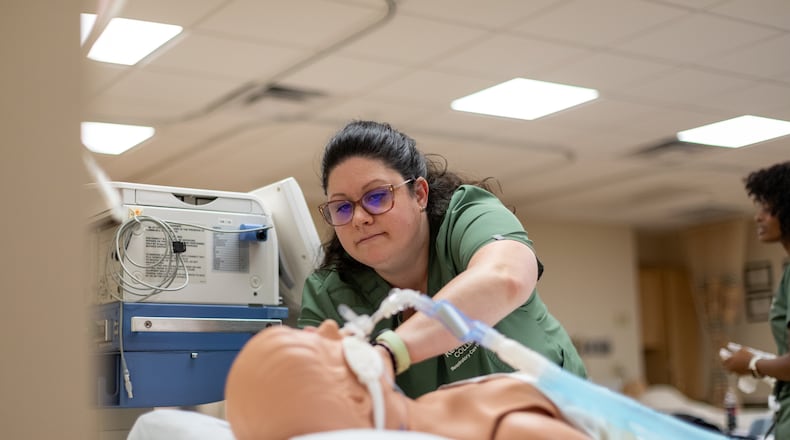“This direct pathway enhances accessibility for Wilberforce students and strengthens the partnership’s commitment to supporting a diverse nursing workforce,” said Paula Reams, dean of nursing at Kettering College.
Kettering College offers an accelerated nursing program for college graduates with a bachelor’s degree from a qualifying university, which includes regionally accredited universities. They must have received at least a 3.0 GPA overall and a 2.8 GPA on science courses, plus have taken seven specific prerequisite courses, including pathophysiology, statistics, two anatomy and physiology courses, both with a lab, and developmental psychology.
Reams said the Wilberforce graduates will have completed all but one prerequisite, which will help streamline their path into the program and nursing.
“This partnership is a monumental step for Wilberforce University and our students,” said Wilberforce President Vann R. Newkirk. “By partnering with Kettering College, we are offering our students a transformative opportunity to pursue their passion for nursing while staying rooted in their Wilberforce educational journey.”
The partnership is expected to help increase diversity within the medical fields. According to the American Association of Colleges in Nursing, in 2022, more than 80% of nurses in the U.S. were white, and about 6.3% were Black. Just under 7% of the workforce reported they were Hispanic or Latino, and about 7.4% were Asian. Nearly 14% of the U.S. population is Black, according to the U.S. Census Bureau.
Diversity in nursing can help improve patient outcomes, help the medical staff understand their patients’ backgrounds, and assist in addressing the racial disparities in healthcare today, analysts have said.
“By increasing diversity, the nursing profession can more effectively address health inequities and ensure that all patients receive respectful and equitable care,” Ream said.
And while there are an increasing number of programs for nursing students, registered nurses are still among the most in-demand jobs in the state. Unlike some other in-demand jobs, which require little to no training or could use transferable skills from other professions, nurses need to be trained and licensed by the state.
About the Author

